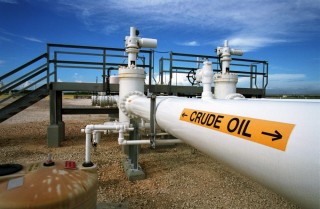Loading
Search
▼ Japan’s crude oil storage leases with producers: scope to do more with strategic stocks
- Category:Other

PLATTS
Japan’s recent deal with Abu Dhabi to lease out more crude storage capacity to the emirate under a renewal agreement is deemed mutually beneficial. Not only will it enhance Tokyo’s supply security, but it also wiill give the Middle Eastern producer greater access to the Asia-Pacific market.
Under the agreement, similar to one Japan has with Saudi Arabia, the Japanese government will pay for storage to be used by Abu Dhabi for commercial purposes, in exchange for assigning priority to supplying the crude to Japan in an emergency.
There is little information available on how actively crude moves in and out of the Japanese storage sites being used by Saudi Arabia and Abu Dhabi. But sources believe the facilities made available free of cost by Japan provide the producers competitive access to the growing markets in the East.
Under a “memorandum of cooperation” that Japan’s Ministry of Economy, Trade and Industry renewed with Abu Dhabi’s Supreme Petroleum Council earlier this month, the emirate can store 6.29 million barrels of crude at Kiire in southwestern Japan for three years, with an option for another two-year extension after that.
The volume was bumped up by 43% from the previous deal as part of an agreement forged in February between Japanese Prime Minister Shinzo Abe and visiting Abu Dhabi Crown Prince Sheikh Mohammed bin Zayed al-Nahyan.
Abu Dhabi National Oil Company is expected to store its crude at the Kiire tanks of Japanese refiner JX Nippon Oil & Energy. METI leases capacity for the national strategic petroleum reserves at the Kiire storage facility from JX.
METI’s latest deal brings the total crude storage capacity leased by Japan to Abu Dhabi and Saudi Arabia to around 12.58 million barrels. The storage deal is also part of Tokyo’s efforts to secure extensions for Japanese upstream concessions in the emirate, more than 60% of which are due to expire in 2018.
The concessions, held by Inpex’s wholly owned subsidiary Japan Oil Development Co., or Jodco, are in the Umm Shaif, Lower Zakum, Umm Al-Dalkh, Satah, Nasr, and the Umm lulu fields in the ADMA block.
Also, under a new policy enacted September 8, Japan designated half the crude volume stored in the country by Saudi Arabia and Abu Dhabi — at the time around 5.35 million barrels — as “secondary SPR.”
This gives the scheme, formally known as “Joint Crude Storage by Producing Countries,” a new, strategic status. Starting April 2015, the volume accounted for in the “secondary SPR” will be 6.29 million barrels, in line with the increased Abu Dhabi storage.
Saudi Aramco also boosted its leased storage capacity in Okinawa, Japan by 25% to 6.29 million barrels when it renewed its deal for a period of three years last December.
Since the storage idea was first proposed to Abe in 2007, his first stint as Japan’s premier, by Saudi Arabia’s King Abdullah, Tokyo has leased storage only to the Kingdom and Abu Dhabi, saying it would prioritize “strategic crude suppliers.”
Spare capacity available with Japan remains limited. But if any more is freed up in the coming years, owing to a reduction in SPR volumes as domestic demand continues on a downward spiral, perhaps Tokyo could look at inviting more strategic suppliers to store oil on its soil.
- November 25, 2014
- Comment (0)
- Trackback(0)

